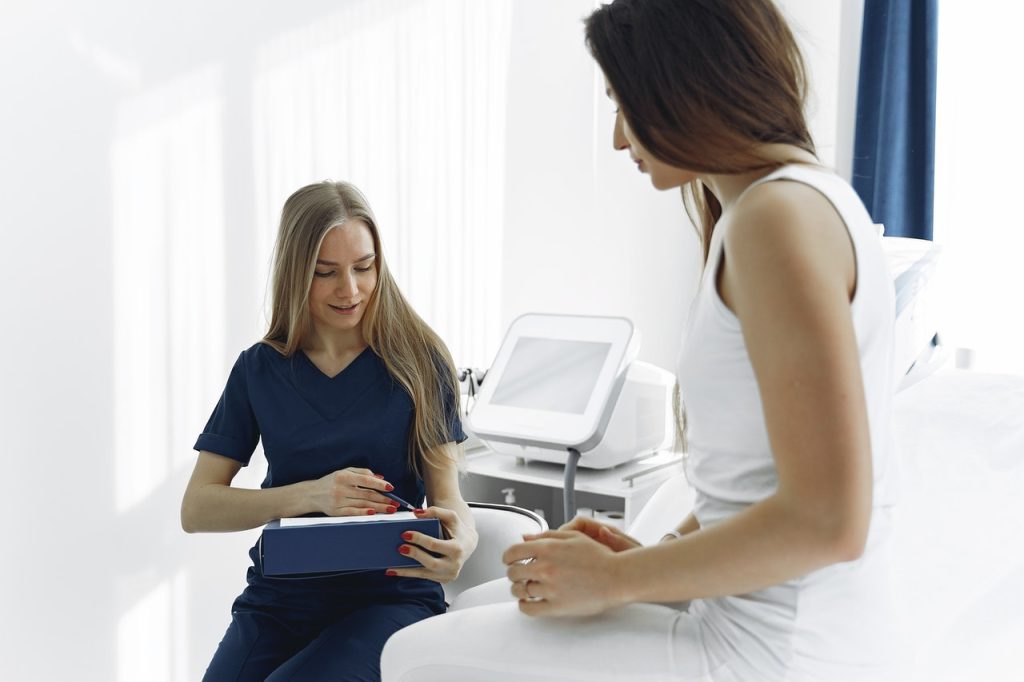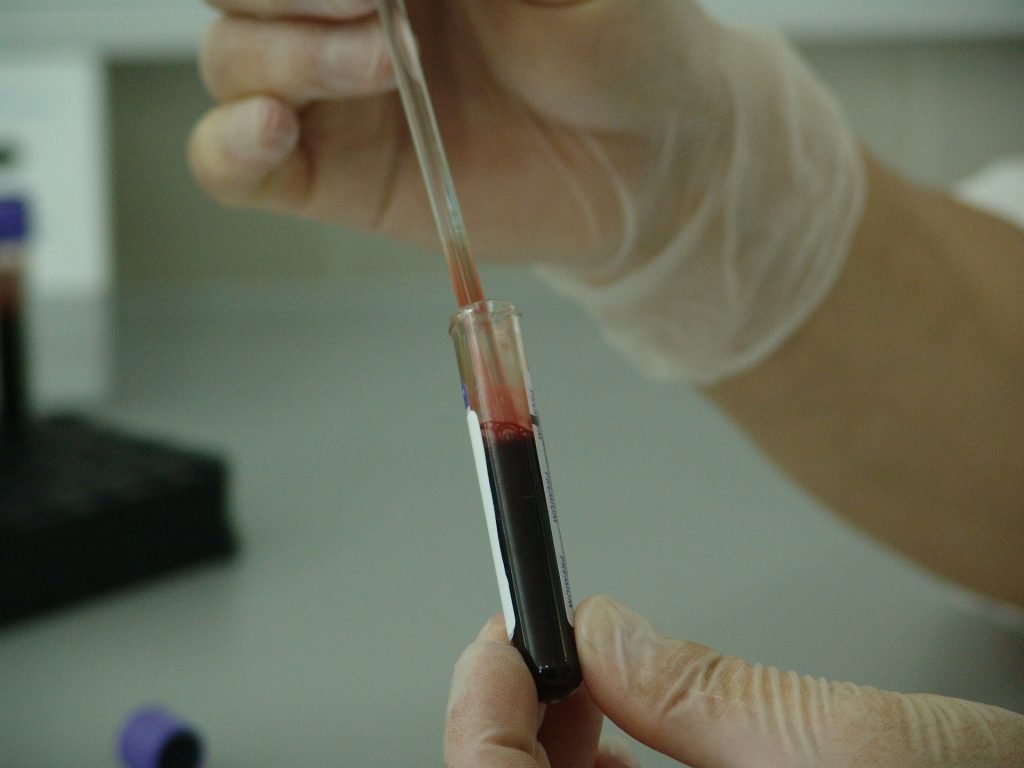
When you make the decision to become sexually active, certain consequences come with the choice. One of them is the possibility of becoming pregnant. The other is the chance you may contract a sexually transmitted disease (STD).
STDs, also sometimes called Sexually Transmitted Illnesses (STIs), pose serious health risks to both men and women. According to the U.S. Centers for Disease Control and Prevention, the number of men and women with an STD continues to rise. For women who are pregnant, having an STD can be harmful to the baby’s development. Moms who are infected can transmit the disease to the baby in utero. Other risks include:
- Premature birth
- Low birth weight
- Birth defects
- Death (newborn and mother)
STDs can affect the development of a baby’s eyes, lungs, and liver, causing irreversible damage. If you are pregnant or planning on becoming pregnant, it is important to get tested for STDs.
How are STDs spread?
STDs are spread through unprotected vaginal, oral, and anal sex. Even if you are using condoms, some STDs are spread through close contact with the skin and you can still contract them. Genital herpes and syphilis are both examples of highly-contagious STDs, even when using protection.
Other STIs, like Human Immunodeficiency Virus (HIV) and Gonorrhea, are spread by contact with bodily fluids during sexual intercourse.
Types of STDs and STD symptoms
There are several types of STDs. Some of the most common STDs in the U.S. include:
- Chlamydia – There are usually no symptoms for men or women with Chlamydia, which is what makes it a dangerous STD. If women are symptomatic, they can experience vaginal discharge, burning with urination, lower abdominal pain, low back pain, nausea, pain during intercourse, and bleeding between menstrual periods. For men, they will have a discharge from the penis, painful urination, and pain or swelling of the testicles. If left untreated, it can cause infertility in both men and women. It can also make women more susceptible to developing Pelvic Inflammatory Disease (PID).
- Gonorrhea – Women who have this STD can experience a yellow or bloody vaginal discharge and burning when they pee. Men will have a yellowish-white discharge from their penis and will also have painful urination. Men may or may not have swollen and painful testicles when they are infected. Sterility is a consequence for both men and women who are not treated for this STD.
- Syphilis – This STD attacks in several stages. In the first stage, you can experience swollen sores that are not painful. You will usually break out in these sores in the area where the infection entered your body. If it is undetected, the second wave of symptoms includes rash, fever, swollen lymph nodes, sore throat, and headaches. You may also experience weight loss, muscle aches, and extreme fatigue. If this STI gets to the third stage without treatment, it can lead to loss of coordination, paralysis, and gradual blindness. If a woman is pregnant with syphilis, it can cause the baby to die in utero.
- HIV/AIDS – This STI produces a fever, sore throat, fatigue, and swollen lymph nodes in both men and women. Without treatment, it will eventually cause your immune system to break down. The virus can be passed from mother to child during pregnancy.
- Genital Herpes – Painful ulcers are the number one sign you have this STD. They usually appear at the site of infection. You also may have a fever and swollen glands, and experience pain during sex.
- Human Papilloma Virus (HPV) – This STD causes genital warts that appear in a cauliflower shape. Sometimes people are completely unaware they are infected because they do not have any noticeable symptoms. For women, it may cause vulvar itching and pain. HPV is a contributing factor in developing reproductive cancer.
- Hepatitis B – The most tell-tale sign of this STI is that it can cause a yellowing of the skin known as jaundice. You also may become fatigued, have dark urine and gray-colored stools, and experience loss of appetite and joint pain.
- Pelvic Inflammatory Disease (PID) – Lower abdominal pain that is like menstrual cramping is the main symptom of this STD in women. It also can cause fever, irregular periods, painful sex, and painful urination. PID only affects women. However, it can be caused by infections carried by men. PID can be life-threatening if left untreated.
Women are more likely than men to suffer from long-term health consequences from STDs. Both sexually active men and women should consider testing, especially if you have multiple sexual partners or are involved in unsafe sexual behaviors.

What tests detect STDs?
The type of STD test you get depends on the STI. Testing can require a urine sample, a swab of the vaginal or anal area, a blood test, or a physical exam. For instance, HPV is detected during a routine gynecological exam that involves a visual inspection and swabbing the area for a pap smear.
If you are diagnosed with an STD, treatment options are available. Many STDs are curable when caught early. Some STDs require treatment with antibiotics. STIs caused by viruses (like HIV/AIDS) can be managed with medications, but not cured.
Top 4 reasons to get tested
When you are sexually active, STDs are a fact of life. Even if it has been a while since you were last sexually active, if you have ever had unprotected sex, you should be tested for STDs. Many people with STDs are unaware they are infected because they have no symptoms or confuse their symptoms with something else. Here are the top 5 reasons to get free STD testing today.
- It protects your health
STDs can live in your body without ever signaling they are there. You can unknowingly infect others. If left undetected and untreated, STDs can lead to serious health conditions like cancer and infertility. - It is easy
STD testing is not painful and some of the testing can be performed quickly. Some testing requires a blood or urine sample, while others may require a swab of the mouth, anus, or vagina. - It is smart
Most STDs are treatable. The sooner you know whether you are infected, the sooner you can begin treatment. - It is necessary
Early detection is the key to successful STD treatment plans. You can be walking around without symptoms, not realizing you are posing a health risk to yourself and others. Getting tested is the only way to know for sure.
Where can I get free STD testing near me?
Care Net Pregnancy Centers offer free STD testing for Chlamydia and Gonorrhea at locations in and around Albuquerque. Making an STD testing appointment with us is easy and confidential. Call 505-880-0882 to schedule an appointment for testing at our Albuquerque location or visit our Contact us page for additional locations. A follow-up appointment will be scheduled for 2 to 7 days after your testing. At the second consultation, we will provide your testing results and discuss options for treatment if you test positive for any STDs. Same-day appointments and walk-ins are welcome.
